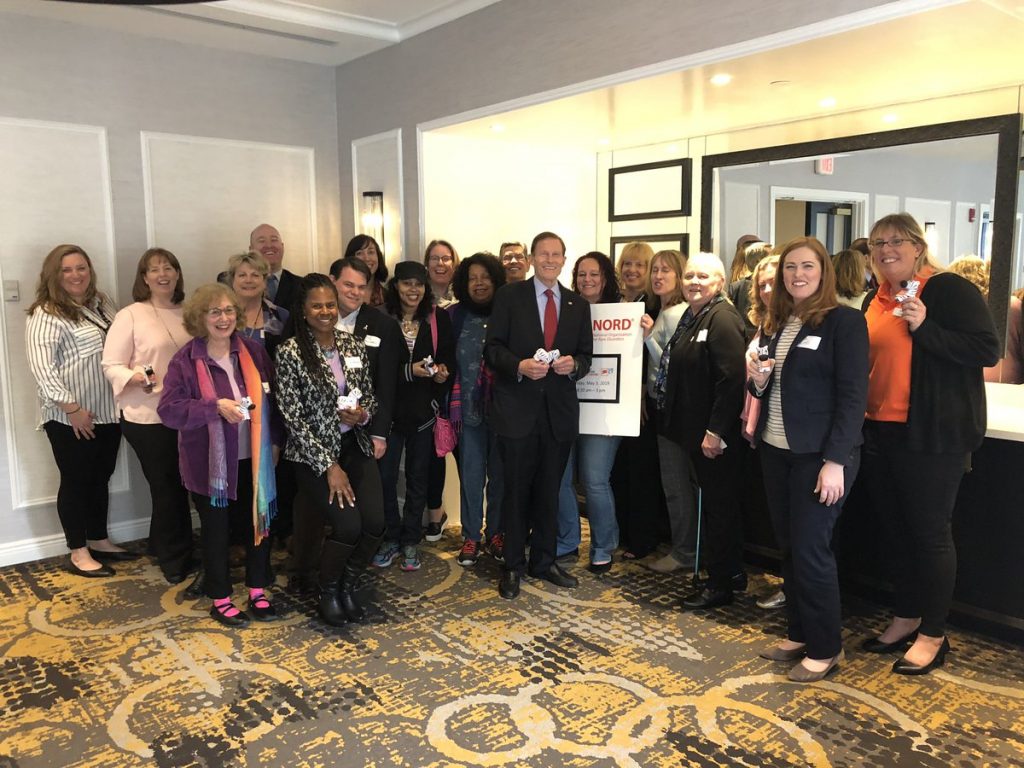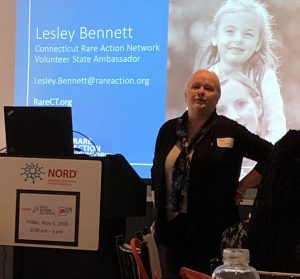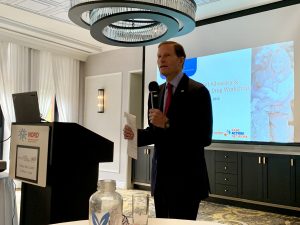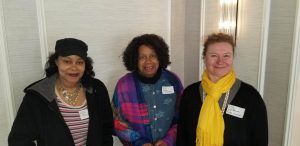Rare Disease Advocacy: ‘Everything’s connected to everything’
Long before Grey’s Anatomy captured television audiences, the 1980s medical drama, Quincy, M.E., helped propel passage of Congressional legislation that fostered the development of more drugs for rare diseases.
In a 1981 episode, the show’s tenacious medical examiner played by Jack Klugman addressed rare disease challenges faced by a patient with Tourette Syndrome, a disorder causing tics such as repetitive movements or unwanted sounds. A 1982 episode focused on myoclonus, a symptom of a rare movement disorder. It was no accident, since Klugman’s brother, the show’s associate producer, suffered from a rare cancer.
That 1982 show, described as the most politically significant episode of the seven-year series, portrays the actor’s quest for passage of federal legislation. Klugman’s real-life testimony gave momentum to that already gathered from powerful politicians and the public’s support to pass what ultimately became the Orphan Drug Act (ODA) of 1983.
Thirty-six years later, the ODA is in danger of losing critical incentives that help drug developers target orphan therapies, and that is why the National Organization for Rare Disorders (NORD) and its Rare Action Network (RAN) hosted an Advocacy Workshop in May at the Goodwin Hotel in Hartford, Conn.
Most rare diseases have no treatment
Orphan drugs are medications intended for the safe and effective treatment, diagnosis or prevention of rare diseases/disorders that affect fewer than 200,000 people in the United States, or that affect more than 200,000 people but are not expected to recover the costs of developing and marketing a treatment drug, according to the Food and Drug Administration.
The hurdles of conquering rare disease are high: 90 percent of the approximately 7,000 rare diseases don’t have an FDA-approved treatment. Getting a diagnosis takes an average of five to seven years, and patients face extensive, lifelong medical needs, high costs for care, and social isolation.
Until a few years ago, the ODA allowed a 50 percent tax credit to rare disease researchers; that tax credit now is 25 percent and in danger of being further reduced.
U.S. Sen. Richard Blumenthal and aides for U.S. Reps. Jahana Hayes, Rosa DeLauro, Joe Courtney and John B. Larson joined more than 20 rare disease patients, caregivers and advocates at the workshop, offering their support to the rare disease community.
Blumenthal talked about the importance of research into rare diseases, saying when it comes to finding treatments, “everything’s connected to everything.”
“It opens new perspectives and avenues for research for other diseases,” the senator said.
‘Healthcare is a right’
A representative of Sofia Sees Hope told the Congressman that the organization’s founder in 2017 testified at a federal FDA hearing as to the critical need for bringing to market LUXTURNA™, developed by Spark Therapeutics. It was ultimately FDA approved as a gene therapy that targets one of the more than 25 gene mutations in the rare disease of Leber congenital amaurosis (LCA) and is also the first genetic therapy in the United States for any inherited disease.
Sofia Sees Hope asked Blumenthal for his support for rare-disease research funding and development and for his continued protection of the ODA and its endangered incentives.
He told the audience that bringing down the costs of prescription drugs and making healthcare universal rank high among his political passions.
“Healthcare should be regarded as a right,” said Blumenthal, who supports and co-sponsors legislation addressing Medicare for all.
He praised the audience members and thanked them for being there.
“I’m proud to be here today,” he said. “I’m grateful for your advocacy.”
On behalf of Congressman Courtney, who represents the eastern half of Connecticut, Karen Weseliza said she would bring the concerns of NORD, Sofia Sees Hope, patients, caregivers and advocates back to her boss.
“A lot of what we hear goes directly to him,” she said.
‘Emotionally draining’ road to diagnosis
Rare disease patients and caregivers told their stories about living with an array of rare diseases with mainly unfamiliar names, such as Hereditary Angioedema that causes recurrent severe swelling; Sporadic Inclusion Body Myositis, a muscle-wasting disease; Stage III Melanoma successfully treated 11 years ago; Scoliosis or severe curvature of the spine; and Wolfram Syndrome, which causes diabetes and optic atrophy.
The Rev. Carmen Wooster of Hartford detailed her exhaustive eight-year journey to find a diagnosis for her daughter.
“It’s very emotionally draining. Eight years of misdiagnoses, eight different things, eight different drug and treatment modalities.”
She is the sole caregiver for her 39-year-old daughter, Maria Carter, who was diagnosed just last month with Stiff Person Syndrome (SPS), a rare syndrome affecting the brain and the spinal cord. Maria experiences tremors and muscle spasms that can be set off by the slightest noise.
According to the National Institutes of Health, people with SPS often have a heightened sensitivity to noise, sudden movements and emotional distress that can set off muscle spasms generating enough force to fracture a bone.
“The hard part of this is being young with this disease,” Carmen said. “It’s progressive.”
She tries to keep emotionally balanced and empathetic in the face of no current treatment or cure.
“I think we learn some life lessons. Life and death lessons.”
Under state Medicaid, she said her daughter is subject to random appointment cancellations, inaccessibility to top doctors and unkind treatment.
“When doctors don’t have an answer, they have a tendency to beat you up,” she said.
Mother and daughter witnessed advocacy in action when a Congressional aide yelled over to her, “We’re going to talk!”
Lisa Perrone, senior district aide to Congressman Larson, said, “This is what we do. I’m going to be reaching out on her behalf because that’s my job.”
The aide later talked with the woman, took her personal information and told her she would be connecting with the Department of Social Services and any other appropriate agency and get back with her.
Carmen said she could not get through these trying times without the healing and calming effects of meditation.
“Keep the faith,” she said. “It’s a day-by-day journey. Try not to think of the future too much because that will trip you up; mentally it will bog you down.
“You have to have hope to go through this and celebrate any breakthrough.”




